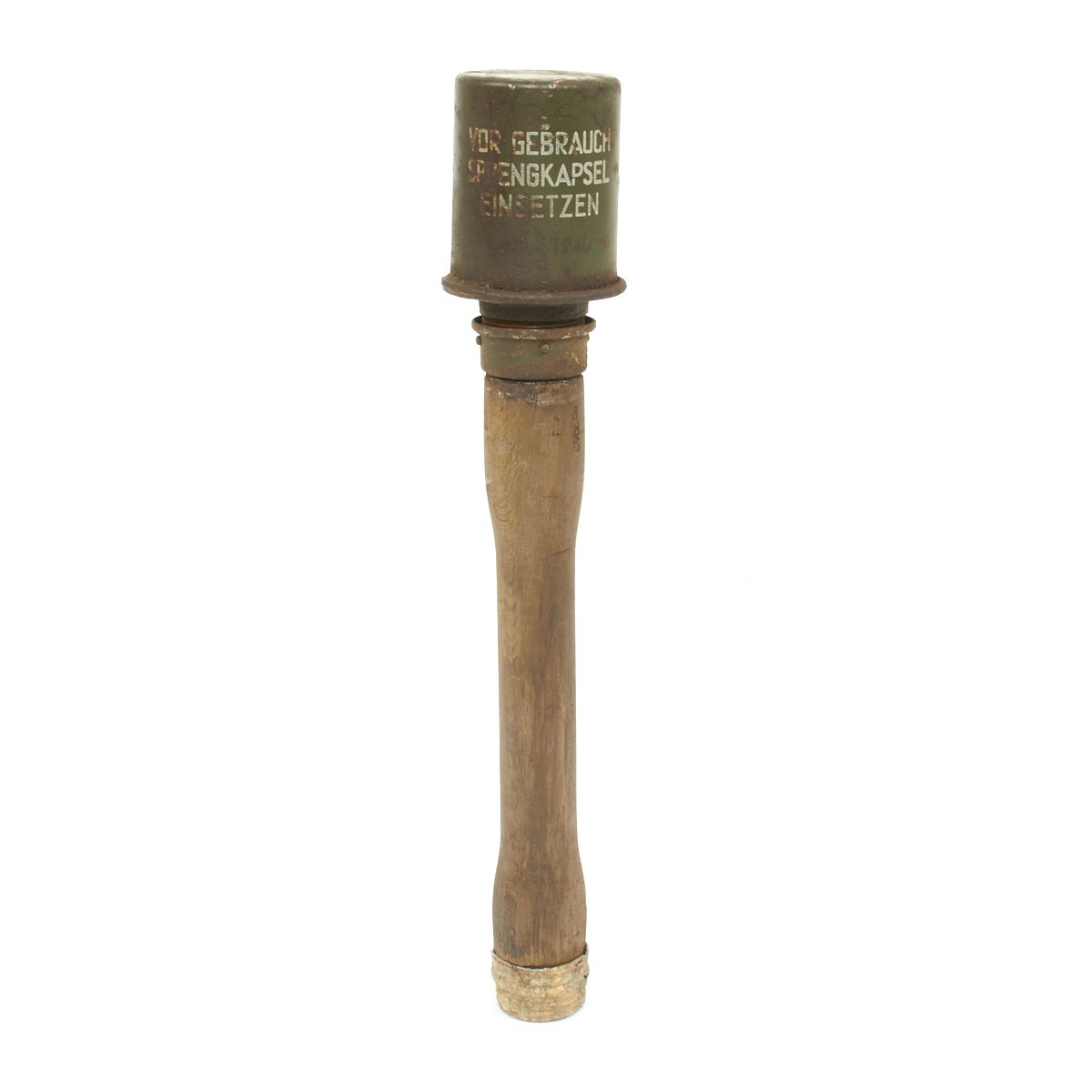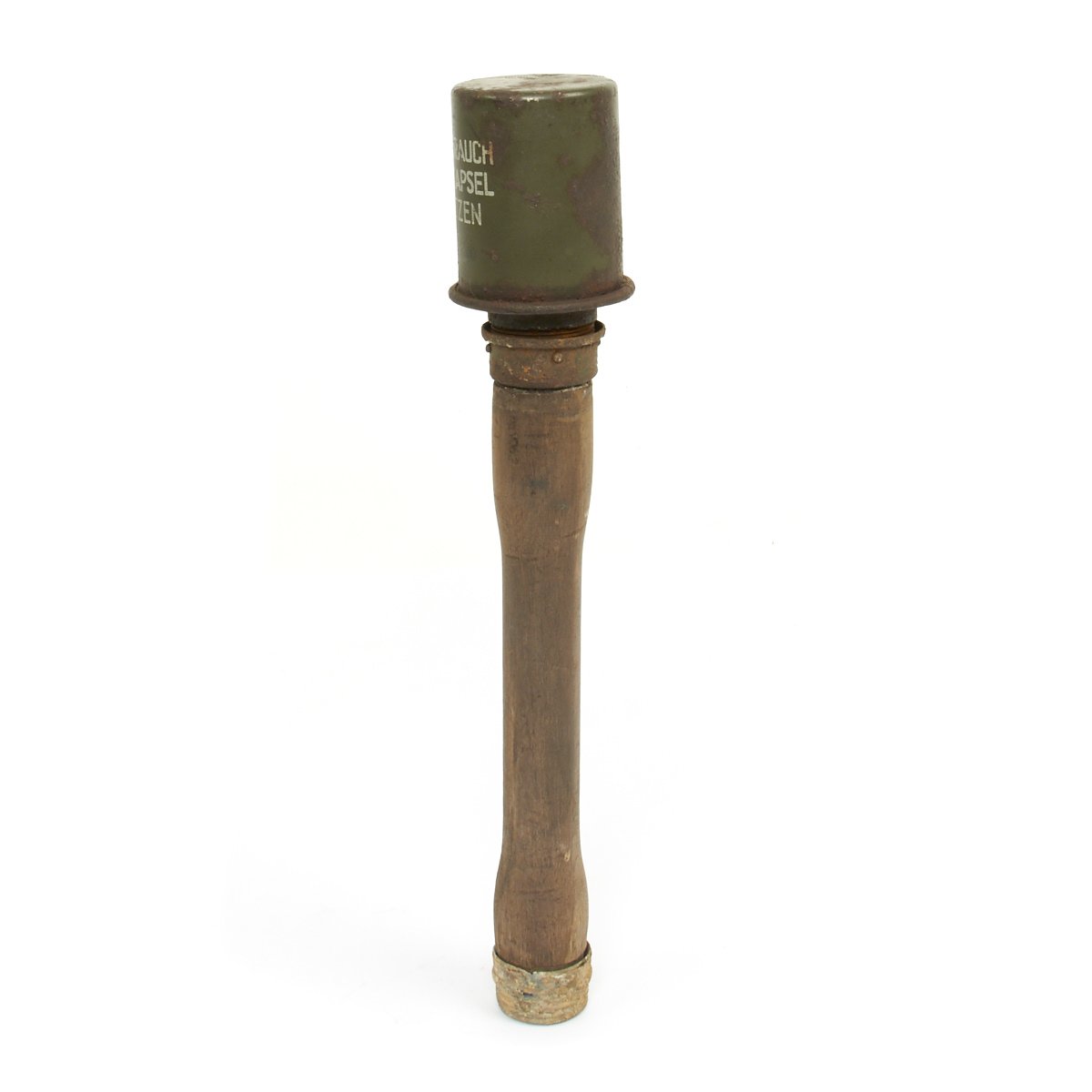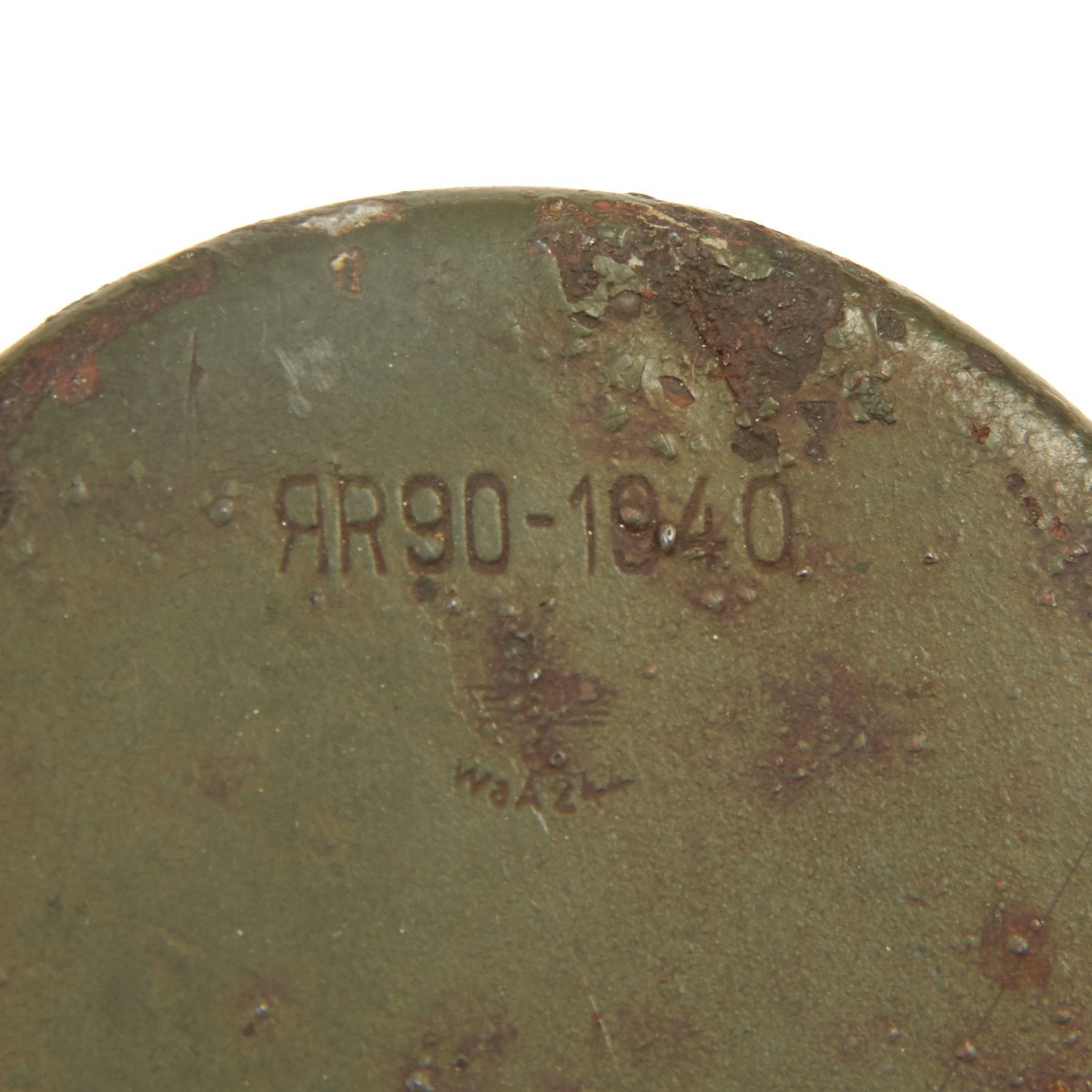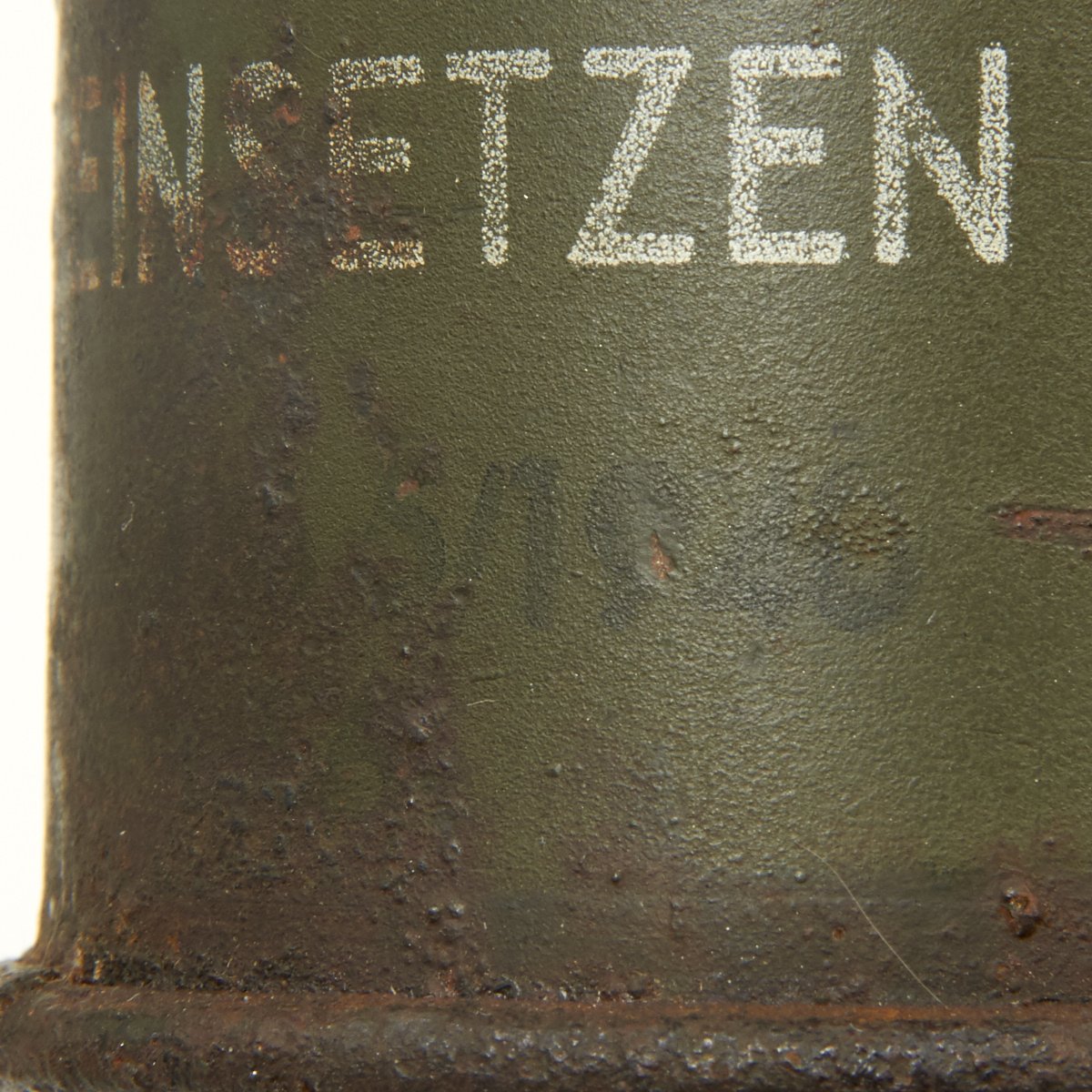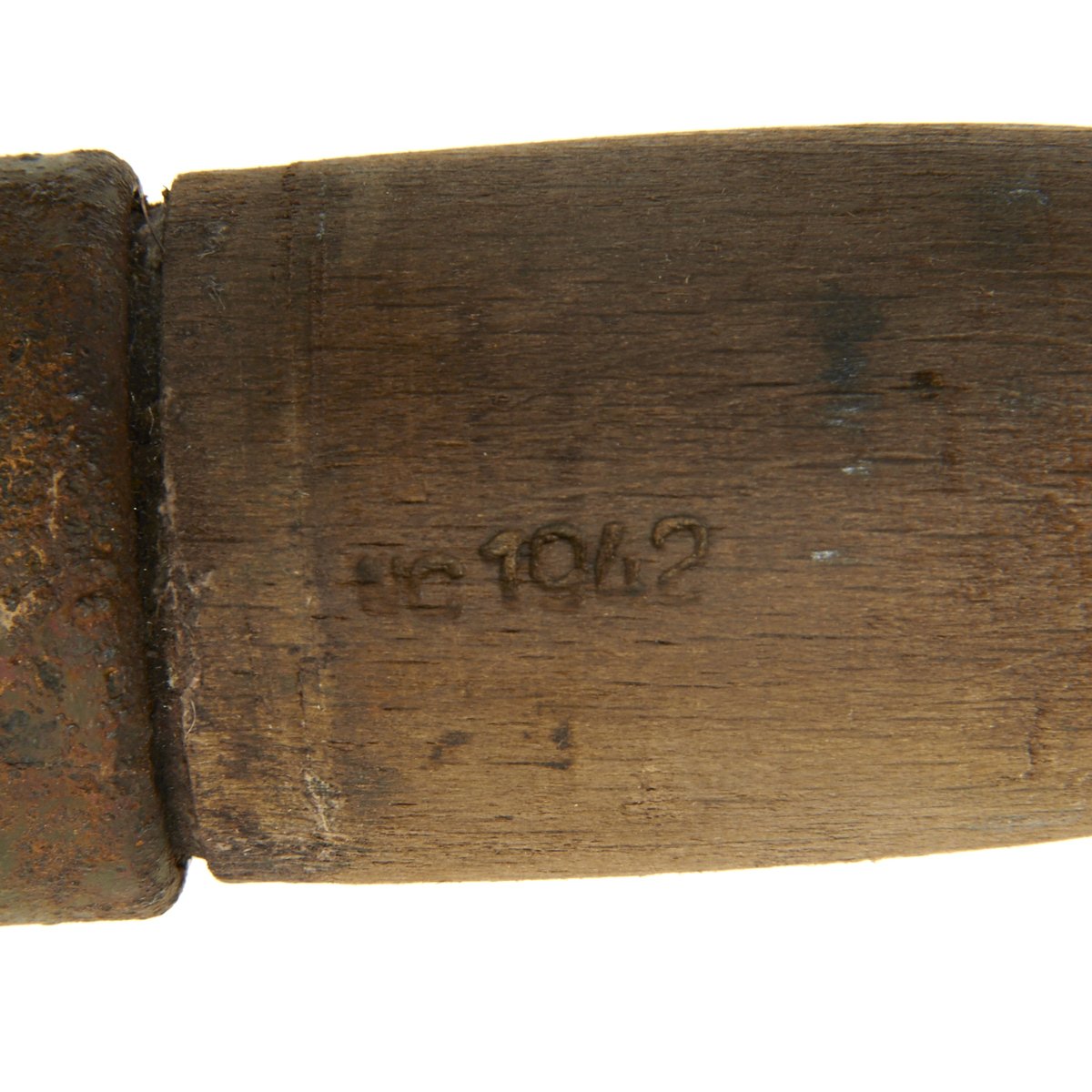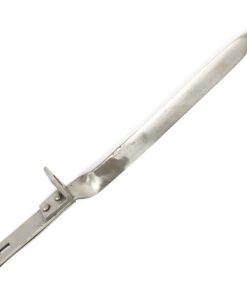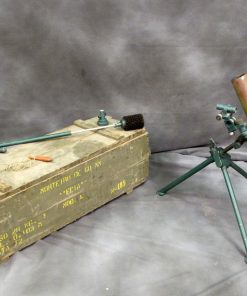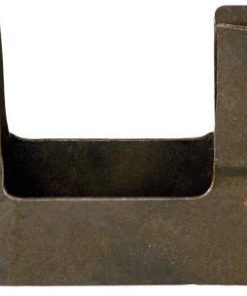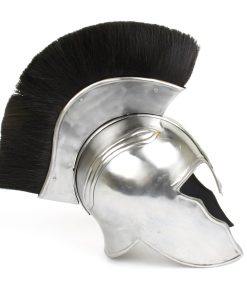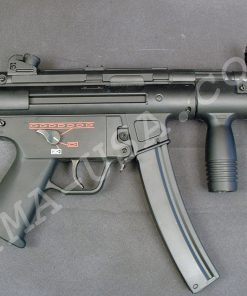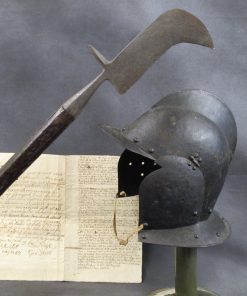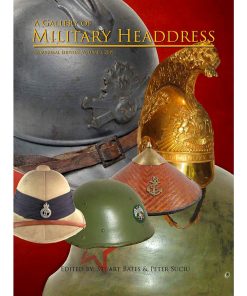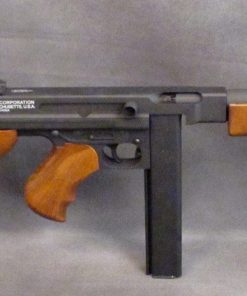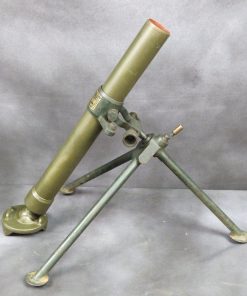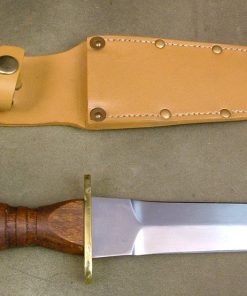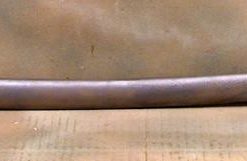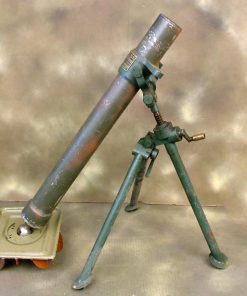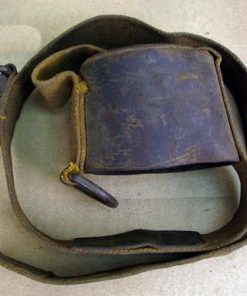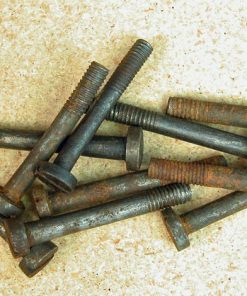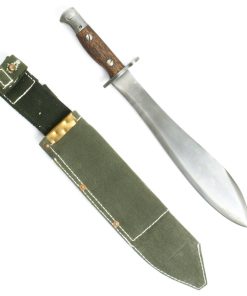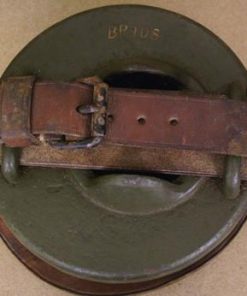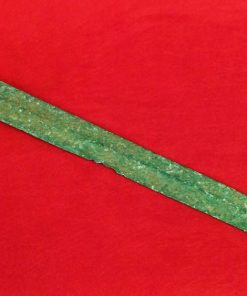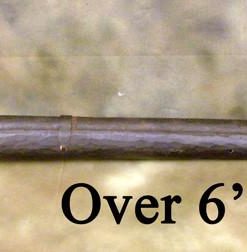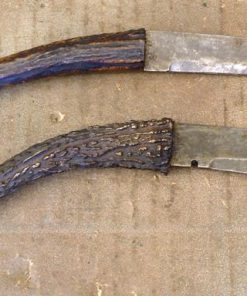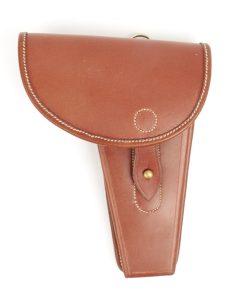Original German WWII M24 Stick Grenade – Dated 1940 Original Items
$ 595,00 $ 178,50
Original Item: Only One Available. This is an extremely rare M1924, M24, or “Stielhandgranate 24” German Stick Grenade, often called a “potato masher”. This example, acquired from the family of a WWII veteran, has been demilitarized according to specifications by the BATF. The warhead still unscrews. It still retains its original paint, and the original markings can be seen on the head and shaft of the grenade.
The warhead bears a manufacturer stamping on the top of the head that reads ЯR 90 1940. This code corresponds to Peter Schlesinger, Metallwarenfabrik, Offenbach a.M. The company was founded by Peter Schlesinger (1859-1934) in 1885, and made accessories and spare parts for the bicycle and automotive industry. Their bicycle lights were sold under the brand “Radsonne” (bicycle sun). During WW2 they manufactured cleaning kits for small arms (Reinigungsgerät 34), Smoke handgrenades (Nebelhandgranaten), Stielhandgranate 24 and Stielhandgranate 43
The front of the head clear white stenciled writing that reads Vor Gebrauch Sprengkapsel einsetzen (Before use insert detonator). It is also ink stamped 1940. The head has rust but bears all original paint with traces of classic red German wartime primer paint showing through underneath.
The wood shaft of the grenade is marked 1942 with maker code. The shaft has spots of cosmetic imperfections but these are only surface imperfections, the strength and integrity of the wood handle is excellent. The lower screw cap has seen much wear from age. The shaft is correctly hollow to allow the internal components and included in an original porcelain donut bead and pull string.
In WW2 the stick of the German M24 (Model 24) grenade provided a lever, significantly improving the throwing distance. The Model 24 could be thrown approximately 30 to 40 yards, whereas the British Mills bomb could only be thrown about 15 yards. The design also minimized the risk of the grenade rolling downhill back towards the thrower when used in hilly terrain or in urban areas. These grenades were extremely useful for clearing out entrenched infantry positions.
As grenades were disposable, encountering them on the market is very rare, especially with the original pull string and weight, making this an excellent opportunity to acquire one to complete a WW2 ordnance collection.
Fast Shipping with Professional Packaging
Thanks to our longstanding association with UPS FedEx DHL, and other major international carriers, we are able to provide a range of shipping options. Our warehouse staff is expertly trained and will wrap your products according to our exact and precise specifications. Prior to shipping, your goods will be thoroughly examined and securely secured. We ship to thousands clients each day across multiple countries. This shows how we're dedicated to be the largest retailer on the internet. Warehouses and distribution centres can be located throughout Europe as well as the USA.
Note: Orders with more than one item will be assigned a processing date depending on the item.
Before shipping before shipping, we'll conduct a thorough inspection of the items you have ordered. Today, the majority of orders will be delivered within 48 hours. The delivery time will be between 3-7 days.
Returns
The stock is dynamic and we cannot completely manage it because multiple stakeholders are involved, including our factory and warehouse. So the actual stock may alter at any time. It's possible that you may not receive your order once the order has been made.
Our policy is valid for a period of 30 days. If you don't receive the product within 30 days, we are not able to issue a refund or an exchange.
You can only return an item if it is unused and in the same state as the day you received it. You must have the item in its original packaging.
Related products
Uncategorized
Uncategorized
Uncategorized
Armored Burgonet Helmet & Polearm from Scottish Castle Leith Hall Circa 1700 Original Items
Uncategorized
Uncategorized
Uncategorized
Uncategorized
Uncategorized
Uncategorized
Angolan Rebel 1970s era 60mm Inert Display Mortar from Angolan Civil War Original Items
Uncategorized
Uncategorized
Uncategorized
Uncategorized
Uncategorized
Uncategorized
Uncategorized
